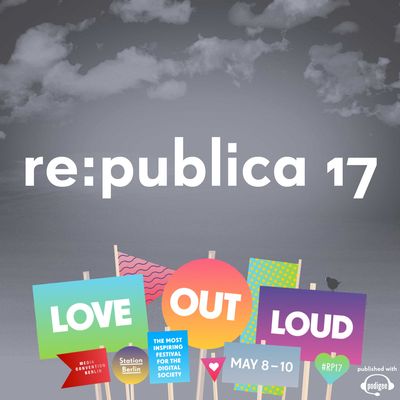re:publica is one of the largest and most exciting conferences about digital culture in the world. Since its foundation in 2007, it has grown from a cozy blogger meeting with 700 participants into a wide-ranging “society conference”, with 8.000 visitors at the anniversary edition re:publica TEN. Representatives of digital culture share their knowledge and decision-making tools, and discuss the future of the information society. Here they can mingle with activists, scientists, hackers, entrepreneurs, NGOs, journalists, social media and marketing experts, and many others. This fosters innovation and creates synergies between net politics, online marketing, network technology, digital society, and (pop) culture. What is more, around 46 percent of re:publica speakers are female – far more than at many other similar events.
https://republica17.network.podigee.io/
episode 5: Alternative narratives: telling stories through open data (en)
Nowadays, the empowerment of subjects from poor classes necessarily involves access, diffusion and production of information. The narratives built by the hegemonic media and, on the other hand, by the new channels of communication that appear in the global peripheries are proof that the data are in dispute in the world. To whom do data belong? For whom are they more or less available? How to make the data visible to guarantee new narratives that allow the development of communities of rights?
- Gilberto Vieira
- Denise Karunungan
- Offray Luna
The production and use of digital data have increased dramatically in recent years due to the expansion of Internet access and the migration of many services and ways of interaction to the online environment. However, there is still a large gap between those with technological skills for using such data, restricted to a very privileged social group, and those who do not have any. This knowledge gap imposes social challenges because having the ability to use the data produced by public and private actors is a determinant factor that allows the most vulnerable groups to understand their context and seek changes towards more just society.
Civil society today brings together technology, knowledge and creativity, but when isolated from the database and information held by public organizations it can only play an underwhelming role far from the innovative potential that it has. The generation of new services and processes, more open and democratic, in close connection with the needs of their interlocutors, could be greatly enhanced by the availability of database and information collection from the government and by the appropriate incentive to the use of that information by civil society organizations.
The panel's idea is to raise these issues and recognize initiatives that centralize this debate. Panelists will share examples from Indonesia, Brazil and Colombia on how to use public data to create counter-narratives about the cultural, economic and social problems and opportunities of southern populations? What is the real capacity of collectives and organizations to generate data that confront official data? What technologies have contributed to this?
